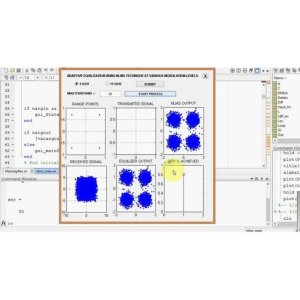Selfishness in Replica Allocation in Mobile Ad Hoc Networks
Problem Definition
Problem Description: The problem of selfish behavior exhibited by certain nodes in a mobile ad hoc network is causing performance degradation in terms of replica allocation. Despite previous techniques to minimize this issue, there is still a significant impact on network accessibility due to nodes that do not fully cooperate with others. This selfish behavior leads to suboptimal replica allocation and reduces the overall efficiency of the network. Therefore, there is a need to address this problem by developing a new algorithm that can handle partial selfishness and implement a novel replica allocation technique to mitigate the effects of selfish replica allocation on network performance.
Proposed Work
The project titled "Handling Selfishness in Replica Allocation over a Mobile Ad Hoc Network" addresses the issue of performance degradation in mobile ad hoc networks caused by the mobility and resource constraints of nodes. Previous techniques aimed at minimizing this degradation assumed all nodes would share memory space, but it was observed that some nodes do not cooperate fully with others, leading to reduced network accessibility. This phenomenon, known as selfish replica allocation, is examined in this project, with a focus on the impact of selfish nodes on replica allocation. A new algorithm is proposed to address partial selfishness and introduce a novel replica allocation technique to mitigate the effects of selfish replica allocation. The project falls under the category of NS2 Based Thesis Projects and specifically belongs to the subcategory of Hadoop Based Projects.
The software used for this research includes NS2 and Hadoop.
Application Area for Industry
The project "Handling Selfishness in Replica Allocation over a Mobile Ad Hoc Network" can be applied in various industrial sectors, including telecommunications, transportation, and logistics. In the telecommunications sector, the proposed solutions can improve network efficiency and reliability by addressing the issue of selfish behavior in nodes that hinders optimal replica allocation. This can lead to better connectivity, reduced downtime, and improved overall network performance. In the transportation and logistics sector, mobile ad hoc networks play a crucial role in enabling communication between vehicles, infrastructure, and logistics systems. By implementing the new algorithm and replica allocation technique, organizations in this sector can enhance communication reliability, optimize resource allocation, and improve decision-making processes.
Specific challenges that industries face which this project addresses include the impact of selfish behavior on network accessibility and efficiency. By developing a new algorithm to handle partial selfishness and implementing a novel replica allocation technique, organizations can mitigate the effects of selfish replica allocation and ensure better performance in mobile ad hoc networks. The benefits of implementing these solutions include improved network reliability, enhanced connectivity, optimized resource allocation, and overall better performance in various industrial domains. Overall, the project provides a valuable tool for addressing the challenges of selfish behavior in mobile ad hoc networks and offers practical solutions for industries to improve their network performance and efficiency.
Application Area for Academics
MTech and PHD students can utilize the proposed project on "Handling Selfishness in Replica Allocation over a Mobile Ad Hoc Network" in their research to explore innovative methods and simulations for improving network performance. This project offers a relevant and practical approach to addressing the issue of selfish behavior exhibited by certain nodes in mobile ad hoc networks, which negatively impacts replica allocation and network efficiency. By developing a new algorithm to handle partial selfishness and implementing a novel replica allocation technique, researchers can explore advanced solutions to optimize network accessibility and performance. The project's focus on NS2 and Hadoop technologies provides a platform for students to delve into the field of network simulation and big data analysis, allowing them to enhance their understanding of network dynamics and resource management. MTech students and PHD scholars specializing in networking and distributed systems can leverage the code and literature from this project for their dissertation, thesis, or research papers, enabling them to contribute valuable insights to the field.
The future scope of this project includes further research on optimizing replica allocation strategies and exploring real-world applications in mobile ad hoc networks, offering a promising avenue for future research endeavors.
Keywords
mobile ad hoc network, selfish behavior, replica allocation, network performance, network accessibility, partial selfishness, algorithm, novel replica allocation technique, NS2 Based Thesis Projects, Hadoop Based Projects, NS2, Hadoop
| Shipping Cost |
|
No reviews found!



















































No comments found for this product. Be the first to comment!